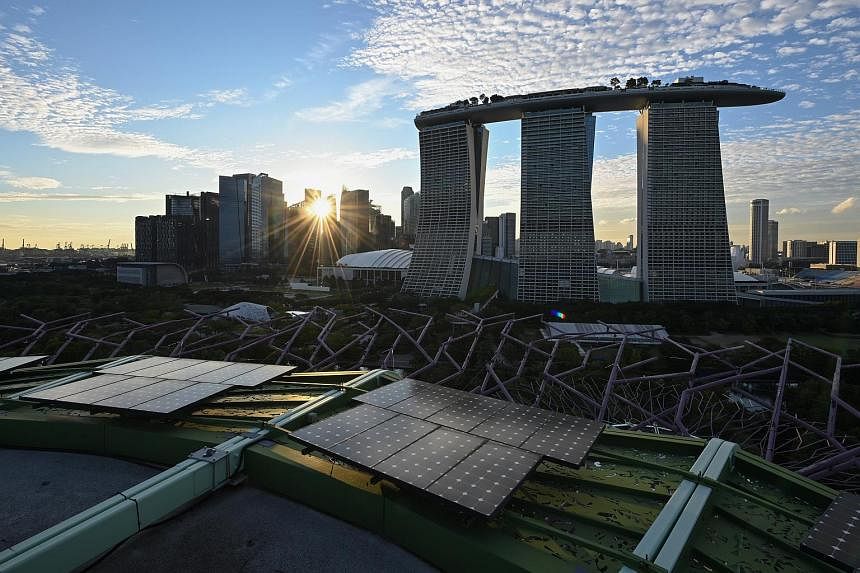SINGAPORE - The Republic must keep up the international momentum in addressing the threat of climate change amid pressing priorities such as the Covid-19 pandemic, rising inflation and geostrategic challenges, said Minister for Sustainability and the Environment Grace Fu on Tuesday (June 7).
Speaking at the gala dinner of Temasek's annual sustainability conference - Ecosperity Week - Ms Fu highlighted three ways the nation can accelerate sustainability and climate action.
1. Catalyse action towards inclusive transition
As the carbon tax is progressively raised to $50 to $80 per tonne by 2030, the revenue will support the transition to a greener economy through incentivising low-carbon solutions and cushioning the impact on businesses and households.
Businesses increasingly recognise the opportunities in the circular, low-carbon economy, while the choices of individuals can also play a role, said Ms Fu.
"Individual action may feel insignificant and is indeed insufficient. However, our collective actions will enable us to achieve our ultimate common goals," she added.
If consumers avoid disposables, buy locally farmed vegetables and fish, and choose energy-efficient appliances, for instance, these choices will create ripple effects that accelerate the development of more sustainable products.
From the middle of next year, large supermarkets will implement a disposable bag charge, which aims to encourage the public to use reusable bags and be more judicious in their use of disposables.
2. Unlock more sustainable solutions
Technologies and solutions to decarbonise still remain out of reach or are not yet commercially viable, but industry collaborations can bring about new solutions, said Ms Fu.
Last month, Singapore joined the First Movers Coalition with eight other nations, which will allow companies to harness purchasing power and supply chains to create early markets for innovative low-carbon technologies.
This serves as a launchpad for them to reach commercial scale and could open doors for local businesses to innovate with like-minded partners.
Ms Fu also cited the Jurong Island Circular Economy study last year, which analysed the energy, water and chemical waste from 51 companies on the island.
The study has provided insights on how to reduce resource use and boost Jurong Island's competitiveness and sustainability.
A new research institute focusing on how to shrink the carbon footprint of the industrial sector - responsible for about 60 per cent of the country's total emissions - was also set up on Jurong Island earlier this year.
One focus area of the Institute of Sustainability for Chemicals, Energy and Environment is on reducing or removing planet-warming emissions.
This can be done through carbon capture, utilisation and storage technologies - which aim to capture greenhouse gases released from industrial processes before they reach the atmosphere, and then either convert them into useful substances, such as chemicals or store them underground.
The institute was set up by the Agency for Science, Technology and Research, which is working with industrial partners and other government agencies to study and plan for the development of a carbon capture and utilisation translational test bed on Jurong Island.
3. Specialise in green finance and carbon services
Ms Fu noted that Singapore is highly disadvantaged by its lack of natural renewable energy sources, as it does not have large rivers to draw hydropower or vast lands for wind turbines.
But with its reputation as an international financial hub, it is well placed to support countries with untapped natural renewable energy sources through the trading of carbon credits, she added.
For example, polluting companies can buy carbon credits from a renewable energy plant to offset and compensate for their own emissions.
And with the Article 6 rulebook on international carbon markets finalised at the United Nations Climate Change Conference last year, Singapore can help propel the growth of green finance and carbon services in the region, said Ms Fu.
"This will enable businesses to access the capital they need to innovate, operationalise, and scale their green projects," she added.
In March, Singapore and Indonesia inked a partnership, where they will collaborate on carbon pricing and markets, and also explore financing solutions in carbon credit projects.


